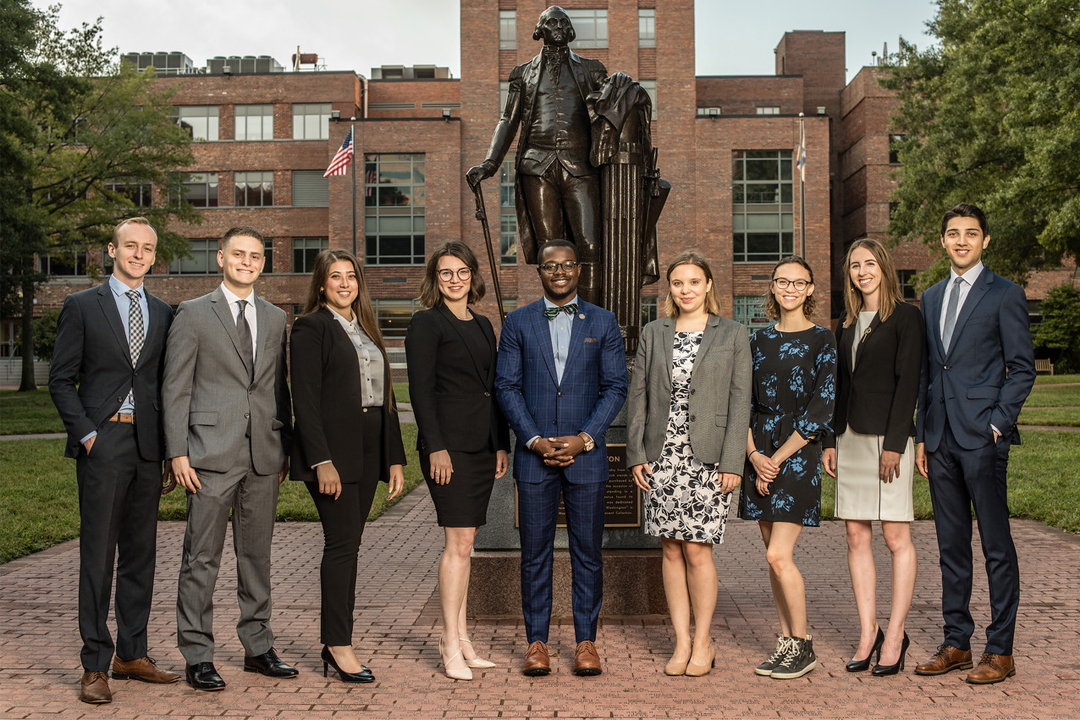The GW Law Student Bar Association (SBA) was named the recipient of the American Bar Association’s (ABA) 2020 Dean Henry J. Ramsey, Jr. Diversity Award.
The award recognizes “excellence in activities that have contributed toward the achievement and advancement of women, minorities, persons with disabilities and persons of differing sexual orientation and gender identities.” It is named for the late Henry J. Ramsey, Jr., former dean of Howard University School of Law, for his “lifetime commitment to issues of inclusiveness and his efforts to increase the quality of the practice and study of the law.”
“We are thrilled for the SBA to receive this well-deserved honor from the ABA,” said Associate Dean of Students Elizabeth Ewert. “The SBA’s desire to help all law students navigate the rigors and pressures of law school, particularly those in need of additional support and resources, helps illustrate why it remains one of the premiere SBA organizations nationwide.”
The cornerstone of the award nomination was the Student Assistance Fund (SAF), developed as a collaboration between the SBA and the Dean of Students office over the last academic year. The SAF provides financial support for students who identify as first generation, low-income, and/or as a person with a disability.
The idea for the SAF came from Damilola Arowolaju, JD ’20, who served as SBA President In 2019-20. Mr. Arowolaju, who experienced financial hardship his 1L year stemming from his status as a low-income and first-generation law student, wanted to ensure that students did not encounter financial and/or social barriers impeding their ability to thrive in law school.
The SAF was formed as part of the SBA’s Student Enrichment Services Branch (SES). Next year, SES will become a separate dedicated branch of the SBA. The SBA is now taking steps to ensure the SAF has enough funding for the upcoming year and the years that follow.
“One goal of the SES was to create community among students in these identified populations. We wanted them to understand they weren’t alone in what they were facing,” said Mr. Arowolaju. “We believe SES and its mission will increase and promote diversity by assisting students the legal profession doesn’t inherently represent or support.”
According to Mr. Arowolaju, funding from the law school was imperative for the SAF. In addition, advocacy skills were crucial in lobbying the law school to enact changes and implement processes allowing the SBA to execute on its vision. He said that students were very pleased to receive support that was not available previously for attending certain large-scale events, going home due to a death in the family, purchasing a suit for professional engagements, and more.
“The diversity of the legal profession is hindered when only students from backgrounds with certain privileges (in wealth, in familial knowledge, or in ability) are able to succeed in law school,” continued Mr. Arowolaju. “We all come to law school from different backgrounds. Some of us need a little more help in our journey.”


